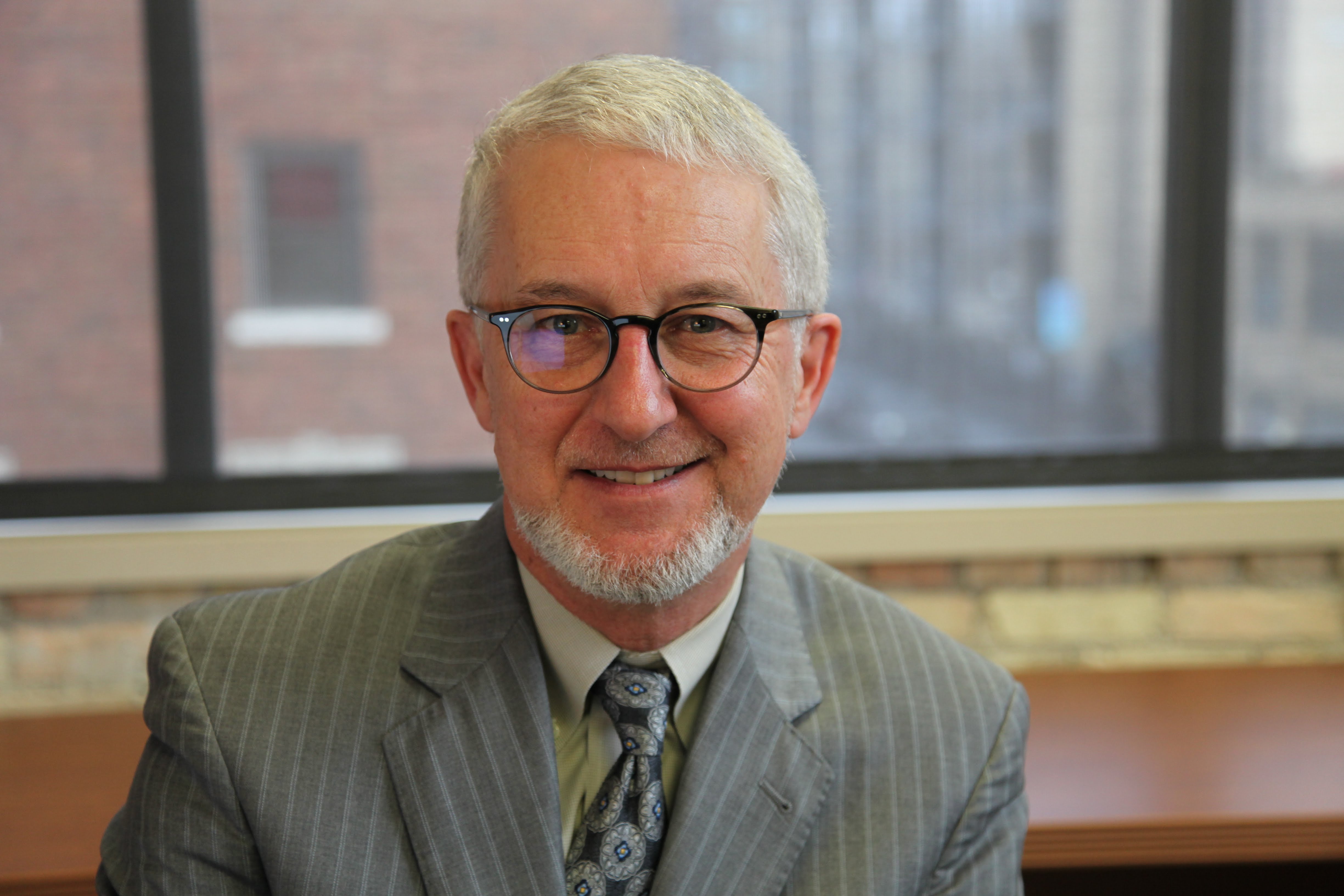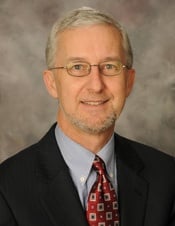
When considering law schools, everyone has different hopes, expectations and needs. But one desire all potential students have in common is to be taught by great legal minds who put education first — people who are expert attorneys in good standing, who have already spent years in the legal trenches, and who are committed to preparing each and every student to be superior attorneys and outstanding citizens.
One such instructor is Professor Nelson Miller. You can find Professor Miller included among 26 of the 'best law teachers' named in Harvard University Press's book What the Best Law Teachers Do. In a recent interview, Miller talked about how Cooley Law School is changing for the better the way the law is taught, expanding the breadth of hands-on experience offered students and improving their overall understanding of the law.
Rethinking Learning
Miller, a graduate of the University of Michigan Law School, is in fact the consummate teacher and has written about 40 books, many on that very subject. In conjunction with the other highly skilled full-time professors who are also experts in legal instruction, they are reshaping the law school experience to be more in tune with the way we live and work today.
“The traditional way of teaching law is sort of ‘star on the stage,’” said Miller. “We’ve changed a great deal over the past five years in making our classroom endeavors more active. Students have actually taken roles in presentations and do exercises in pairs and in teams. We’ve really structured it for engagement because that is where education is. When students are actively using their knowledge, they actually learn.”
Another innovation is the law school’s partnership with Western Michigan University’s Instructional Design and Management Research Lab, directed by Douglas A. Johnson who holds a Ph.D. in applied behavior analysis. The lab sends Ph.D. candidates to observe Cooley Law School classes and then works with Johnson to design more interactive instruction. The results have been exceptional.
“There’s science behind this, studies about how students learn, and we try to use that expertise as lawyers would,” explained Miller. “This is what lawyers do. We are interdisciplinary experts and so our faculty team here has brought that kind of interdisciplinary interest to our teaching. It has truly made a difference in the students’ performance here. (It) made a revolution in how we engage students in learning law.”
Taking Action
Getting out of the classroom and into the real world is another way Cooley is reshaping legal education. By utilizing some of the other programs at WMU, Miller is finding new ways to expose students to the realities that lie beyond law school. For example, a program with medical school students is providing instruction for both aspiring lawyers and physicians.
“We actually had law students teaching medical students to deal with the legal proceedings that physicians are sometimes involved,” recalled Miller. “That was a wonderful experience for our law students to act as experts, which they were, in the court procedures physicians sometimes face but a wonderful opportunity to work with professionals in another field, which is what lawyers do in practice. So great training for law students and they were great representatives of the law school teaching these medical students at the university. We seek out those collaborations.”
The law school also shares an Innocence Project with WMU where law students are supervising students in the social work program in the investigation of the rights of prisoners who may have been incarcerated without just grounds. And to ensure a well-rounded community service effort, Cooley Law School has also partnered with several community organizations.
“Take for example, the Gerald R. Ford Presidential Museum where we do programming for them,” said Miller. “We actually teach law students and students from other programs at the museum, even using the mockup of the president’s office and the oval office. Wonderful program in leadership and other programs in ethics as well. So, we are a strong collaborative partner with the Ford museum and many other community organizations.”
Opportunity and Alumni
Another facet of Cooley Law School Miller believes is special is the opportunity to attend law school afforded to those with families and full-time jobs, and those in military service. One graduate in particular faced many challenges, but Miller said she came through it all with flying colors.
“We had a graduate, Mariko Willis, who is a single parent and also had a fulltime job working for a law firm though not yet as a lawyer, and she also was a member of the National Guard,” recalled Miller. “While here in law school earning a law degree, working full time and as a parent, she had several call ups and had training interrupting her legal education, but the school worked with her so well. She graduated on time, passed the bar on her first attempt and is employed now as a lawyer at the same law firm where she was working. It’s truly a success story. She is an amazing person and an amazing lawyer as well. I am very proud to have taught her and we thank her very much for her service.”
Whatever a student’s ambition is, Miller and his team are ready to help make it happen. For example, he said, “A student who came here from Arizona wanted to go to Washington, D.C., to work for the federal government. She accomplished that,” he said. “She did that through an externship, serving an administrative law judge first and then the next step was to serve a federal appellate court as a law clerk. She came here with an ambition and we helped her get there. I like to say, ‘whatever your ambitions are, our externships particularly and our alumni network can help you get there.’”
Speaking of Cooley Law School alumni, Miller says the value of his team’s work “is really reflected in our graduates.” And when those graduates come back to visit, offer clerking positions, externships and more, you know you’re doing something right. And when they want to stay and teach, all the better for everyone!
“We have been fortunate to bring a few of our alumni or senior alumni at this campus back as adjunct faculty. For example, Christian Montesinos graduated several years ago and has done nothing but immigration law for the past decade or so and he’s back teaching immigration law for us as a still fairly recent graduate,” said Miller. “He’s wonderful. Born in Ecuador, he has clients literally all over the world in his immigration practice, in many different countries and he is bringing that new expertise back to teach students in an elective course on immigration law.”
The depth of Cooley’s commitment to providing the best possible legal education experience continues. Thanks to professors like Miller and his team, the students will always come first and their doors will always be open.
“We’re all accomplished professionals, we were already accomplished before we came here. We don’t have a reputation to earn,” explained Miller. “We’d rather have a service mission on this campus and that’s a very strong commitment. I’m here for only one reason and that’s to serve the students.”



